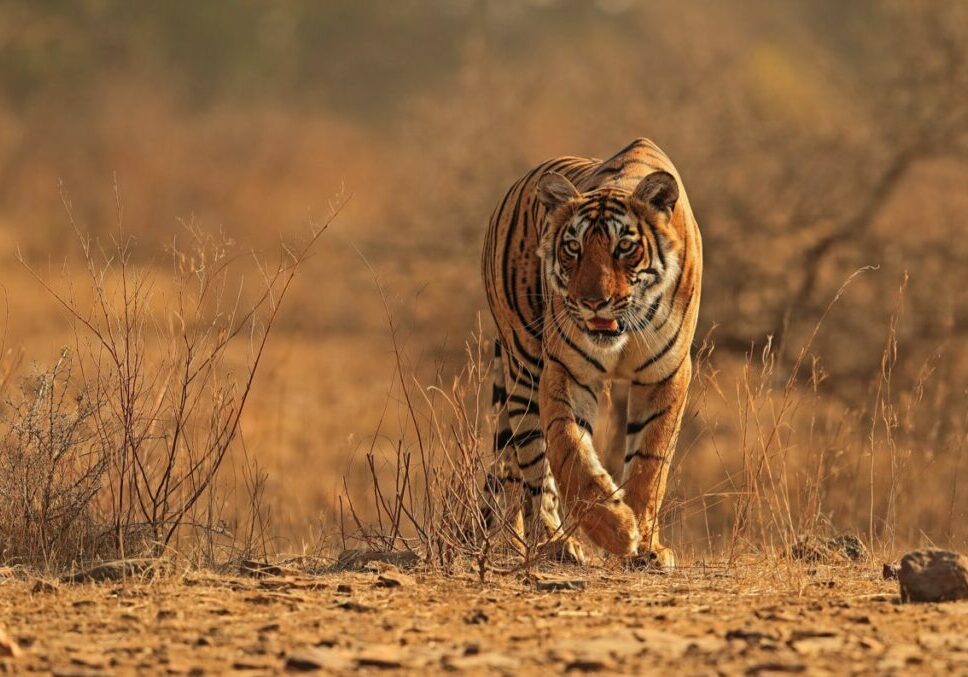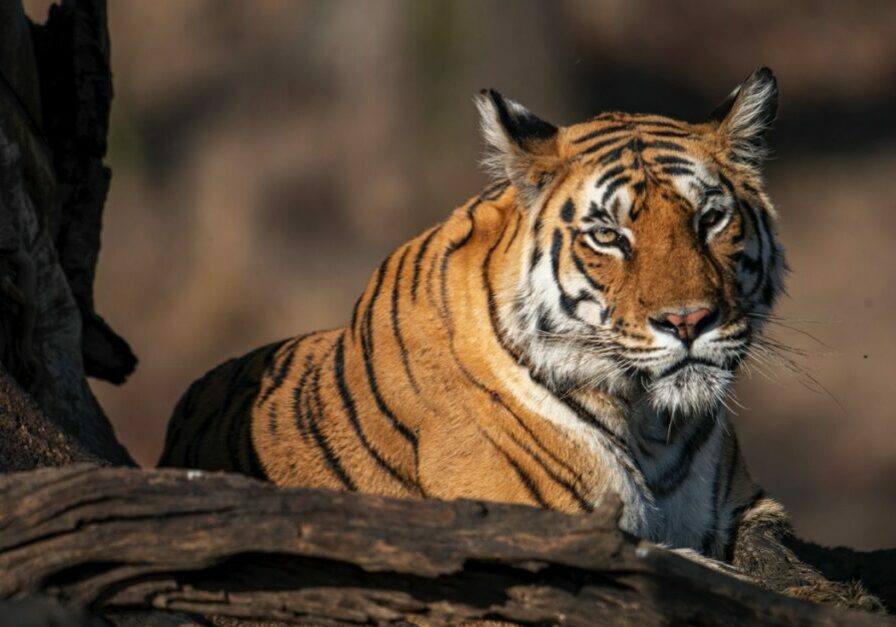From a global population of around 100,000 a century ago, wild tiger numbers hit an all-time low of as few as 3,200 in 2010. With the iconic big cats facing an uncertain future, 13 governments joined a commitment, known as TX2, to double the world’s wild tigers by 2022.
Nepal is one of the countries that signed up to TX2 – in 2009 there were estimated to be just 121 wild tigers there. New survey results, however, have shown that following rigorous efforts by the government and local communities to protect and expand key tiger habitats, create corridors and crack down on the illegal wildlife trade, the population has now risen by a historic 190% to an estimated 355.
Thanks to you, we supported Nepal’s ambitious and extensive survey efforts, which took 16,811 days of staff time to complete. They included monitoring images from nearly 4,000 camera traps covering an area of 18,928 sq km, and training local people in survey techniques.
Nepal’s incredible results, which were released on Global Tiger Day in July 2022, are testament to the government’s long-standing commitment to conservation and the support of local communities.
“The commitment of the people of Nepal to reducing poaching and protecting tigers is inspirational,” says Becci May, our senior programme adviser. “We hope it will serve as a model for conservation elsewhere.”
Though Nepal’s success offers hope for the tiger’s future, there’s more work to be done. “Sadly, tigers are still the most threatened big cat species globally, reduced to just 5% of their historic range,” adds Becci.
”When we protect tiger habitat, we protect so much more. Tigers play a key role in maintaining a healthy ecosystem, and the vast areas of forest they require are a vital carbon store. Halting and reversing nature loss is the key to allowing both people and wildlife to thrive.“
Tiger-range countries are in the process of developing new goals for global tiger conservation over the next 12 years. With your help, we’ll be working with them to enable wild tigers to thrive alongside people.
Adopt a tiger
You can do even more to support wild tigers in Nepal and other countries by adopting a tiger.
More to explore

Photo story: A day in the life of Nepal’s tiger trackers
Monitoring wild tiger numbers is only possible thanks to the work of dedicated teams. Take a trip into the field with Nepal’s intrepid tiger trackers

